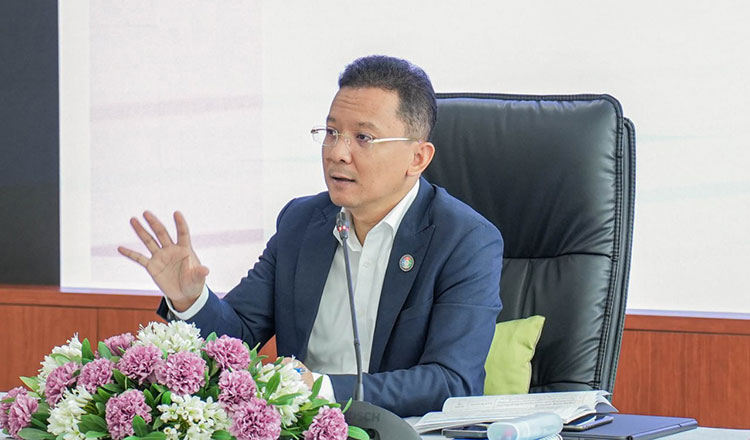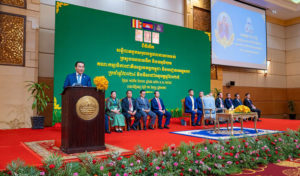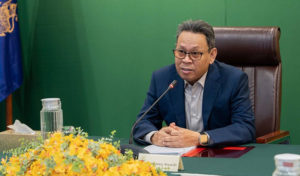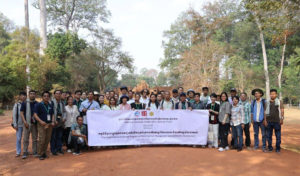According to the Ministry of Industry, Science, Technology and Innovation on Wednesday, as of February 11, 2025, the informal economy registration center had received 11,447 applications, mostly in the Phnom Penh metropolitan area.
The report was presented at a meeting of the Informal Economy Development Coordinating Committee chaired by Minister of Industry, Science, Technology and Innovation Hem Vandy. The meeting aimed to review the progress of key measures implemented by relevant ministries and institutions.
The committee reviewed the implementation of the 45 key measures and identified some challenges in implementing the national strategy among ministries and institutions and sub-national administrations. He highlighted the need to accelerate progress, especially among sub-national administrations, in terms of registration and ensuring that registered informal economy workers can receive real benefits.
The committee also discussed support mechanisms and the continuation of benefits related to taxation, skills development, financial services, social protection services and the National Social Security Fund (NSSF), etc.
On January 20, 2025, the Informal Economy Development Coordinating Committee collaborated with the Phnom Penh Municipal Administration to organize an outreach campaign involving approximately 1,500 informal economy workers with the aim of promoting wider registration.
The committee also plans to organize similar campaigns in Battambang province on February 23 and Siem Reap in March, with plans to expand to Kampong Speu, Kampong Thom, and other provinces in the future.
Similar campaigns are planned in Battambang province on February 23 and Siem Reap, with plans to expand to Kampong Speu, Kampong Thom, and other provinces.
As of February 11, 2025, the Informal Economy Registration Center had received 11,447 registrations, most of which were in the Phnom Penh metropolitan area.
To expand registration nationwide, he called on ministries, institutions, and sub-national administrations to increase outreach campaigns and continue to provide benefits for informal economy workers.
He also cited the example of a project to strengthen hygiene and sanitation standards for street food vendors and market vendors, which will be piloted in Kampong Thom province. He encouraged business associations to promote the adoption of these hygiene standards among informal economy workers.
The Informal Economy Development Coordinating Committee is also setting up a monitoring and evaluation system to track key indicators, strengthen accountability and prepare progress reports to be submitted to the Royal Government.
Speaking to the Khmer Times, Lor Vichet, Vice President of the Cambodian Chinese Business Association (CCCA), stressed the need for informal businesses to transition to formal economies.
He added that this requires businesses to register properly, secure sufficient capital and adopt modern technology to meet regional and international standards.
He said that the business landscape in Cambodia is still dominated by informal small and medium-sized enterprises that lack the necessary infrastructure to meet international standards.
He further noted that the initiative reflects the commitment of the Royal Government and relevant ministries to structural reforms. By encouraging domestic enterprises to formalize, Cambodia aims to strengthen its economic landscape and enhance international competitiveness.
“This shows that the government is paying close attention to aligning Cambodia’s economic policies with regional and international trends, ensuring sustainable growth and attracting quality investment,” he added.






